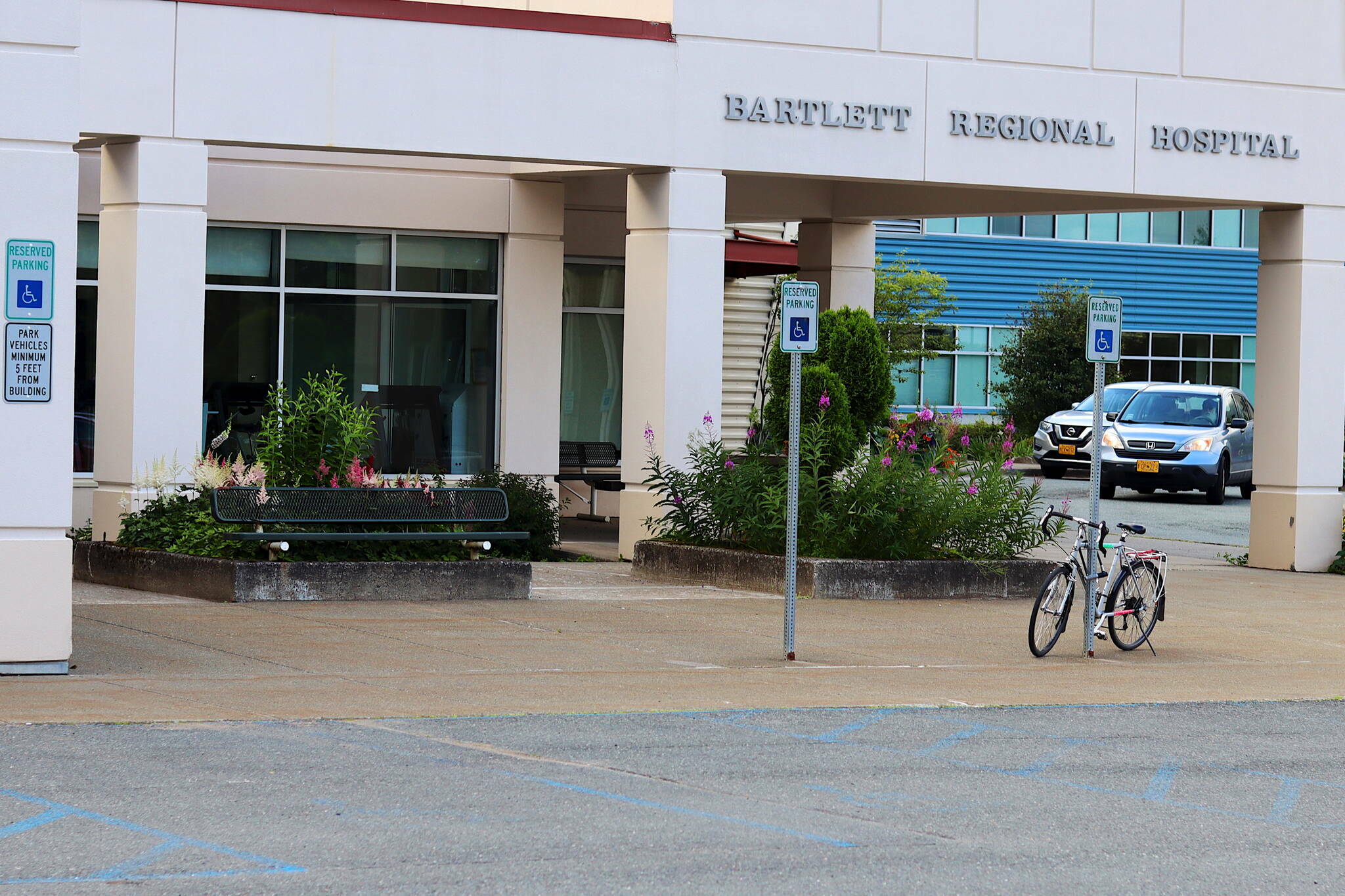Bartlett Regional Hospital, in the early stages of a budget-cutting endeavor to fix a deficit that could leave the hospital broke in three years, is facing additional financial pressure as the union representing a majority of employees says negotiations for a new contract are at an impasse because of differences over wages.
The employees aren’t allowed to strike, so the next steps following the failure of mediation talks Wednesday is non-binding arbitration followed by the Juneau Assembly making a final decision if necessary, said Erin Hardin, a spokesperson for the hospital, in an interview Wednesday. Meanwhile, the employees are working under the same terms of the three-year contract that expired earlier this year.
Union members are aware of the hospital’s financial difficulties, but some of those are occurring because of management actions that are making it difficult to lure and retain permanent employees, said Shutney Frisbie, president of International Longshore and Warehouse Union Healthcare Unit 2201, which as of May represented about 560 Bartlett employees. The hospital also currently has about 240 non-union employees.
For instance, Frisbie said, the hospital has been hiring temporary contract staff at high wages in recent years to cope with workforce shortages.
“They will be able to recruit and retain regular staff if they are given appropriate wages,” she said.
Bartlett’s union employees received on average 1% raises in 2020, 2% in 2021 and 4% in 2022, compared to the national healthcare industry averages for those respective years of 6.6%, 5% and 4.8%, Frisbee said.
The hospital is offering employees raises of 2% this year, 2% next year and 4.25% in 2027, Hardin said. Frisbee said the union is seeking raises for those years of 3%, 3% and 6%, respectively.
A core issue for the hospital is it has been losing roughly $1 million a month since the summer of 2020, which has resulted in recent proposals to eliminate or scale back some “non-core” programs such as crisis stabilization and substance abuse treatment. In addition to losing money, some of those programs are facing staffing struggles including the recent departure of some employees.
Chad Brown, the hospital’s human resources director, said so far the hospital has trimmed about $2.3 million of the $9.8 million in cuts needed to balance this year’s budget, but the raises the union are asking for would add a combined $5.2 million in costs during the next three years compared to the raises the hospital is offering. Proportionately, the extra costs would equate to $1.3 million this year.
“So what that does is that simply puts us in a hole that becomes greater,” he said.
Worker shortages in the healthcare industry have been pronounced since the COVID-19 pandemic, resulting in many facilities resorting to hiring more high-cost temporary workers and/or boosting pay of permanent staff. The SouthEast Alaska Regional Health Consortium (SEARHC) announced in February it was boosting the minimum pay for its “direct-hire” workers to $25 an hour, while the lowest-paid union employees at Bartlett make less than $20 an hour (Hardin has said the wages aren’t directly comparable due to total compensation including benefits).
The union representing Bartlett workers issued a press release Wednesday asking people to express support for the employees to hospital leaders and Assembly members. Frisbee said that is one of their remaining viable options since, aside from the arbitration and Assembly steps in the process, there are limited ways for workers to advocate for their demands.
“We can do public demonstrations, we can stand on the street corner with signs, but we can’t strike,” she said. “And we can’t block the entrance of the hospital. So we’re very limited, according to the city’s labor laws, on what we can actually do.”
Frisbee said there are no plans by the union for a work slowdown or other actions that would affect hospital staffing.
“What we are doing right now is trying to get as much leverage as we can and the only way we can really do that in this small community is to get the community’s support,” she said. “To go in front of the Assembly, to know these facts, and hope that those who support the hospital and the employees and that want the hospital to continue to thrive, that they would step up and have some words for the Assembly for us.”
• Contact Mark Sabbatini at mark.sabbatini@juneauempire.com or (907) 957-2306.

